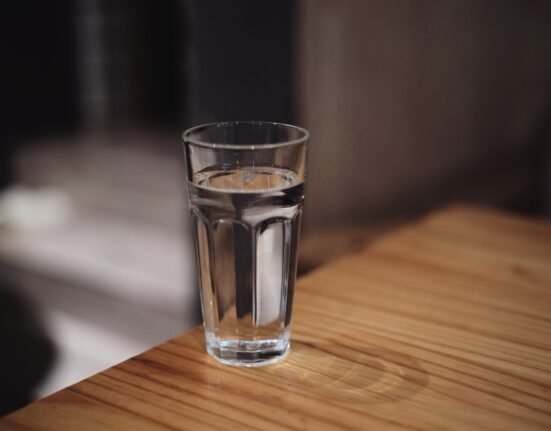HQ Team
November 26, 2022: What is the perfect water intake for a day for a normal healthy adult?
Opinions differ, with some recommending minimum 8 glasses and some less or more. But the universally accepted number is 8 glasses of water.
We all agree on the benefits of hydration, but 8 glasses, the right amount or not, is the debate. According to the U.S. National Academies of Sciences, Engineering, and Medicine, daily fluid intake should be 15.5 cups (3.7 litres) of fluids for men and 11.5 cups (2.7 litres) for women. Remember, this is the recommended “fluid” intake, not just water. The Center for Disease Control and Prevention also suggests drinks with beneficial macro- and micronutrients can also contribute to fluid intake. These include milk (for protein and calcium) and 100% fruit juices (for vitamin C).
New research from the University of Aberdeen has found that the recommended eight glasses of water ( approx.. 2 litres)a day may be too much.
Scientists estimate people only really need about 1.5 to 1.8 litres of water per day.
Prof John Speakman from the University of Aberdeen said: “The original estimate of two litres a day comes from a slight miscalculation.
“The water that we’d need to drink is the difference between the total water that we need to ingest and the amount that we get from our food.
“The way they estimated the amount from food was by asking people how much they eat.
“Because people under-report how much they eat, there’s a misestimate, and so you overestimate the amount of water that’s needed.”
Earlier research on water intake has largely been with small samples. For the present research, scientists collaborated across the world to measure exact water turnover using a stable isotope technique. They surveyed 5,604 people from 23 different countries aged between eight days and 96 years old.
Water turnover is not equal to the requirement for drinking water
For this experiment, stable isotope deuterium replaced hydrogen molecules, and participants were asked to drink this water. Deuterium is found naturally in the human body and is completely harmless. The body absorbs the needed water and the extra deuterium is flushed out, which was measured.
Energy levels and temperature, and climate are also factors in one’s water intake. People with a higher water turnover usually need to drink more water. Athletes and pregnant and breastfeeding women need more water than normal..
Men aged 20-35 turned over an average of 4.2 litres per day. This decreased with age, averaging 2.5 litres per day for men in their 90s.
Women aged 20-40 averaged a turnover of 3.3 litres, which also declined to 2.5 litres by the age of 90.
Prof Speakman said that the water turnover does not equal the drinking water requirement. He said : “Even if a male in his 20s has a water turnover of 4.2 litres per day, he does not need to drink 4.2 litres of water each day.
“About 15% of this value reflects surface water exchange and water produced from metabolism.
“The actual required water intake is about 3.6 litres per day. Since most foods also contain water, a substantial amount of water is provided just by eating.
“This study shows that the common suggestion that we should all be drinking eight glasses of water is probably too high for most people in most situations and a ‘one-size-fits-all policy’ for water intake is not supported by this data.”
He said the research represented a big step forwards in predicting future water needs.
“Clean drinking water isn’t free,” Prof Speakman said.
“If people on average drink half a litre more than they need and you multiply that by 40 million adults in the UK, that means that we’re needlessly drinking and peeing 20 million litres of water that we have to supply.
“There is a cost in doing that.”
The Right Doze of Water
According to Harvard Medical School’s blog, hydration keeps you physiologically well-oiled by carrying nutrients and oxygen to your cells, aids digestion, flushes toxins and even maintains your blood pressure.
Besides beverages and water, about 20 per cent of our fluid intake comes from the food-rich food we eat, such as leafy greens, cucumber, celery, berries, melons, lettuce, etc. Coffee and tea also are counted as hydration, though some say caffeine
- The amount we need depends on our body size, metabolism, the weather, the food we eat, age and our activity levels.
- Most adults lose 2 to 3 litres of water per day. The loss is more in people with a higher metabolism rate or those that live in high-temperature zones.
- Air travel leads to an approximate loss of 1.5 litres of water during a three-hour flight.
- Lactating and breastfeeding mothers need more water.
- People on a high-protein diet and a high-fibre diet need more intake of liquid.
Avoid
- sugar-sweetened soft drinks and cordials
- fruit drinks
- vitamin-infused waters
- flavoured mineral waters
- energy and sports drinks.
To strike a balance in your water/fluid intake, we recommend age, weight and activity-appropriate intake.
The latest findings were published in Science this week.



